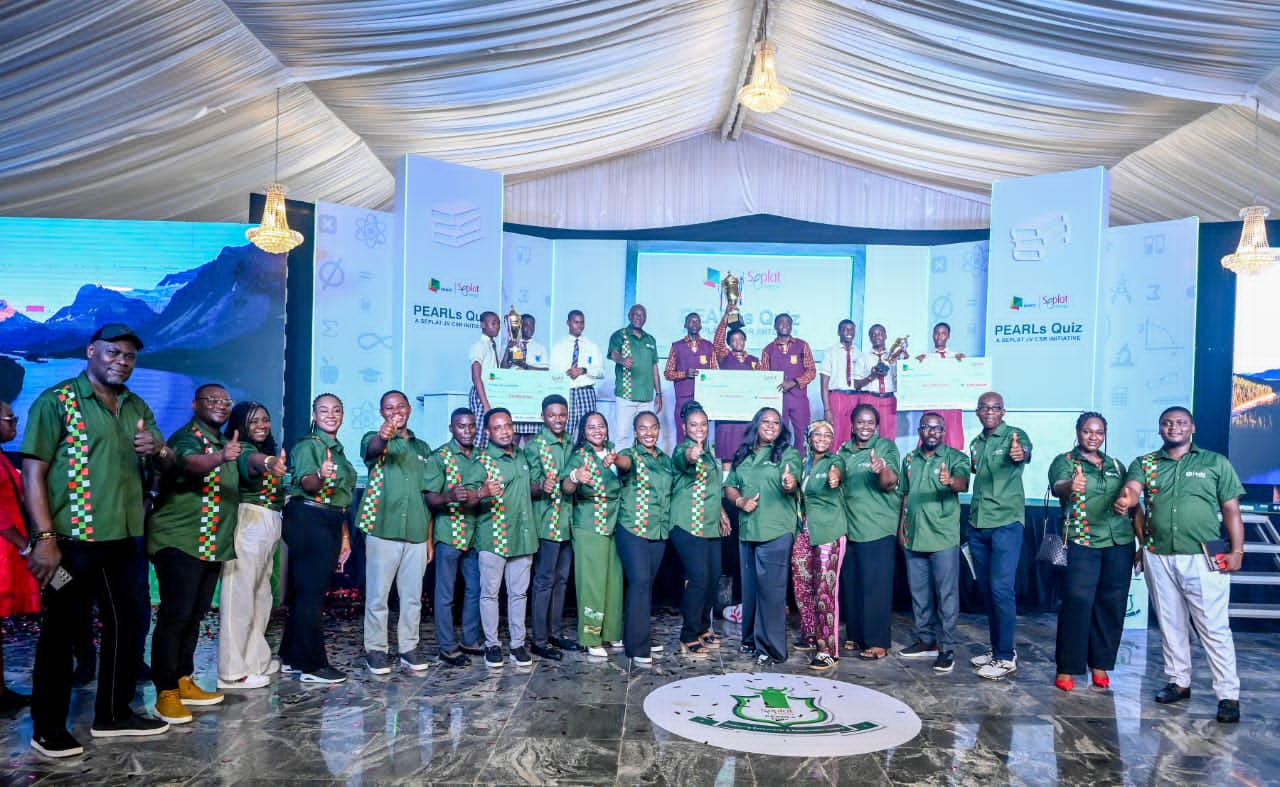
In September 2022, distraught and traumatised farmers in Kaduna State were constrained to tell the Federal Government to do what it needed to do so that they could gain access to their farmlands. Access to their farms became impossible as they were restrained and killed by insurgents.
Specifically, the farmers and other rural dwellers in parts of the state, while lamenting their frustrations and helplessness last November, said that they resorted to negotiations with terrorists, including payment of huge “taxes, levies,” as well as free labour and making sundry offers to non-state actors to gain access to their farmlands, especially during the harvest period.
The immediate Minister of Agriculture and Rural Development, Mohammed Abubakar, also admitted the sad development and warned that if measures were not taken, hordes of Nigerians would join the over 130 million that are multi-dimensionally poor.
Against claims by the Federal Government that no local council in Borno State was under the control of insurgents, the former Speaker of the state House of Assembly, Abdulkarim Lawan, last December, said that two local councils in the state Guzamala and Kukawa in Borno North Senatorial District were being controlled by the terrorists. He therefore, appealed to the Federal Government and the military to dislodge the terrorists.
In making the call while briefing newsmen on the state’s 2023 budget presentation by Governor Babagana Zulum, he said: “There is no peace in Guzamala Local Council because there is still no civilian or military presence there. I have consistently pleaded with the Federal Government to deploy security there so that the civil population can return. This situation is not restricted to my local council alone. The situation applies to Kukawa Local Council as well.
How a sovereign state like Nigeria is still sharing territories with non-state actors as it marks its 63rd year of independence is what many are finding difficult to come to terms with.
Also confounding to Nigerians, is how October 1 of the last 62 years have become days for Nigeria and Nigerians to rue missed opportunities, lament about perennial misgovernance, and decry poor leadership at state and national levels.
The day has also become one to weep about failed government programmes and policies, needless bloodletting, as well as unmitigated wastage of public resources. How long the nation will trudge on with the litany of oddities, only time will tell.
As complaints of a bleak future continue to reverberate, instead of a celebration of major feats and accomplishments since being set free from the grip of colonial masters, more Nigerians are continuing to query the genuineness and sincerity of the political class.
While political leaders get proficient daily in either frittering away scarce resources, or embezzling outright, funds appropriated for developmental projects, the country generally appears to be doing better retrogressing than progressing in virtually all areas of national development, and also lagging in basic services and improved standard of living.
Sharing his perspective on the successful attacks going on in the country at the behest of insurgents and sundry outlaws despite the huge amount of money allocated to the security sector in the last 10 years, the Chief Imam, University of Lagos (UNILAG), Prof. Ismail Musa, said: “We are yet to understand the nature of the problem; it may be multi-dimensional. However, we need a comprehensive investigation involving experts from various disciplines. We need to learn from the experiences of countries that have gone through similar challenges. Above all, need divine resources.”
Apart from the last eight years being horrible for the country security–wise, inflation, soaring cost of living, and rising unemployment rate have been with us for so long. So, why have previous governments become so adept at enunciating policies that end up hurting Nigerians and engendering poor governance, instead of improving their quality of life, Musa said: “The size of our budget is small vis-a-vis our population, and our borders are porous. This forces the government to take care of the population of neighboring countries. Unfortunately, the Federal Government is trying to handle all issues whereas the private sector ought to play major roles, while the government regulates their activities for quality and to prevent profiteering. Also, leadership at all levels is handled by mostly people who do not understand the magnitude and importance of the concepts of God-consciousness, accountability eternity, etc.”
Corruption has been one of the biggest challenges that is hobbling Nigeria’s journey to nationhood. Why is it so difficult to eliminate this cankerworm despite the avowed commitment to do so by past administrations? The cleric responded: “There is no sincerity of purpose; there is also the under-utilisation of technology and disregard for the development of spiritual and moral capital. We erroneously focus on education for survival and material progress at the expense of the more important moral capital development.”
The President General of Ohanaeze Ndigbo, Chief Emmanuel Iwuanyanwu, in recounting the journey so far, insisted that the desire to remove the country from the clutches of colonialists and foreign domination was to, among other things, impact the peoples’ welfare, and engender national development.
“We believed that we could make the best out of the country such that using whatever resources that God has blessed us with, we could take care of our own needs and develop at our pace. Sadly, things have not worked the way that we planned. A lot of things have happened to tear us apart and we don’t seem to agree that we were united in the fight for independence of the country,” he stated.
Iwuanyanwu, who spoke in Enugu, however, stated that the right leadership and right attitude were required to restore the country to the path of development and progress, stressing that almost every sector of the economy has broken down, thus betraying the aspirations of those who fought for the independence of the country.
For the Executive Director of the Civil Liberties Organisation (CLO), Comrade Ibuchukwu Ezike, the situation of the country has seriously betrayed the intentions of independence, stressing that at 63, Nigeria can only celebrate corruption, bad governance, insecurity and underdevelopment.
Ezike in an interview with The Guardian said: “Today’s Nigeria is a shame, regret and too far a cry from Nigeria of our dream, the Nigeria that our political forefathers fought for, and achieved through life-threatening struggles and difficulties.
“At Independence in 1960 and up to 1967, Nigerians had enough food to feed themselves; had good healthcare facilities for the people; had quality standard of education; our naira was stronger than pounds sterling; farming or agriculture was booming, our Gross Domestic Product (GDP) was something to write home about; infrastructural facilities like roads, railways, airports and seaports were strong, durable and water supply, telephone services and electricity were good and served the citizens better.
“Above these social welfare facilities, there was near perfect security of lives and property and human life meant something, and was well secured and protected. We lived in peace and were our brothers’ keepers. There was happiness. The discovery of oil was a monumental source of blessing and joy to Nigeria and Nigerians. Functional refineries were constructed and maintained and they served Nigerians well when this mess began.
“Today’s Nigeria is the total opposite of the above. Today, human life means nothing to our rulers. Human beings are kidnapped, extorted, and killed like flies. People’s mothers, wives, and daughters are raped and in some extreme cases, murdered after being raped. In churches, mosques, farms, schools, and markets among other public places, people are regularly shot dead. Our farms have been destroyed and hunger has multiplied. Communities and homes are raided at night and set ablaze,” he said.
Ezike continued: “Under-aged Christians are allegedly abducted, criminally converted to Moslems, kept as sex slaves, and finally forced to marry emirs and their subjects under the watch of our so-called security agencies. Corruption, executive rascality and lawlessness, abandoned social facilities (infrastructural decay) namely our roads that have become death traps, dilapidated railway lines, refineries, schools, state-owned industries, hospitals etc. have collapsed. Our Nigeria has irredeemably crumbled as salaries, gratuities, and pensions are rarely paid.”
Ibuchukwu who was a member of the 2014 National Conference stated that the country got into the current situation when it degraded accountability and responsible governance.
“That is from the period when fraudsters started taking over power in Nigeria and treating same as personal property. Thus, when those who found themselves in the corridors of power began to unconscionably plunder and loot public treasuries and convert public funds and property to personal effects, and ethnicity and religion became the parameters for creating states and local government and for sharing the national cake; when people in power started having utter disregard for the law, human rights, due process and handling of public issues or affairs as private matters. This mildly started after the civil war when the military occupied power but got to a wider and more threatening stage during the takeover of political power by greedier and insensitive military dictators in the mid-’80s. This was during the era of military officers who began to crown themselves as generals without leading and winning wars. General Ibrahim Badamasi Babangida, to a reasonable extent, started that trend. So, you can see a situation where two or three former regions have less number of states and local governments than one former region, and where one region, the South East, which hitherto, was the most single ethnic nationality in Africa, has heinously become a minority, both in population and in the number of states, local governments and in the sharing of the national cake.

“Furthermore, it may interest you to know that Kano and Jigawa states made up the erstwhile Kano State. As one state then, it had 44 local councils while Lagos had 20. Kano State till date has 44 local councils and Jigawa State has 27, but Lagos still has 20 local councils recognized by the constitution. If Kano State has more population than Lagos State, does Jigawa State with 27 local councils, and Katsina State with 35 local councils have more population than Lagos State? I think that this was the philosophy or logic behind President Tinubu’s creation of 57 “local government areas in Lagos State when he was the governor.
“The worst of the whole scenarios was the production of a Caliphate Constitution by the ethnic military called Decree 24 of 1999, and since 1999, the greedy, unpatriotic, and selfish National Assembly has refused to commence a genuine process of writing the people’s constitution. This is how we got here,” he alleged.
On what the President Bola Tinubu administration should do to restore hope, Ezike stated that the government must stop payment of fuel subsidy to a group of fraudsters who collude with Aso Rock to plunder Nigeria.
“I have persistently maintained that there is nothing like fuel subsidy in Nigeria since 1989 during which time General Ibrahim Babangida removed it, and we staged the popular Anti-Structural Adjustment Programme (Anti-SAP) protest. Since then there has been nothing called oil or fuel subsidy in Nigeria otherwise let those who speak in favour of the subsidy tell us who re-introduced it, and when. The right way to stop that fraud is to stop paying a dime to anyone.
“The government should also reduce the pump prices of petroleum products. It should start serious turnaround maintenance or reconstruction of the whole refineries in the country. This done, we shall refine in Nigeria and this will arrest the issue of refining overseas and further bring down the pump prices of these products for the happiness of the people.
“The government must also restore the confidence of Nigerians, by ushering in a people’s constitution and throwing away that fraudulent Decree 24. The owners of Nigeria – the ethnic regions that constitute Nigeria will perform this task, not the government. President Tinubu, as a member of the National Democratic Coalition (NADECO) once carried placards to protest on the streets of Nigeria for the writing of a people’s constitution. He is in the right place to do this. This is the major or key problem facing Nigeria. Another challenge is subsidiaries.
“Tinubu should address security crisis, chase Fulani herdsmen out of peoples’ farms to allow farmers to produce foods that will feed Nigerians, and stop without delay, the unprovoked attacks on host communities in Nigeria. The Federal Government should declare a state of emergency in the education, and roads sectors, improve on youth employment, review workers’salaries, settle outstanding issues with ASUU, and also address the nation’s housing deficit,” he suggested.
Sharing his views, a lawyer and former governorship candidate in Enugu State, Nonso Ogbeh stated that it was not too late in the day for President Tinubu to introduce changes that could restore confidence in the ailing economy of the nation, explaining that he was in the best position to do it.

According to him, “What I expect from the federal and state governments is to assemble a seasoned economic think-tank to revitalise the ailing economy. I expect President Tinubu to jettison politics as far as the economy of this nation is concerned, and bring those that will give him the advise that he needs to revive the economy.
“He should know that there is frustration in the land; there is hardship and hunger everywhere since the removal of the PMS subsidy. He should work to reduce waste by politicians. He should also embrace pro-active economic policies, and amend various tax laws to give incentives to private and small entrepreneurs that are still struggling. There should be tax holidays to enable people to bring back their businesses because insecurity has not allowed things to settle down. So, it should be a priority going forward.”
Ogbeh, who went down memory lane to recall the struggle for independence, stated that those who participated in it would be disappointed with how badly things have become.
“I don’t think that our forefathers believe that after 63 years of independence, we will still be battling with challenges that our contemporaries in other climes have overcome. Unfortunately, the omen that has bedeviled Nigeria as a nation is the aftermath of the prevalence of bad leadership across the three tiers of governance. Interestingly, we have had both military and civilian leaders in this country, and the two sides have been unable to prove their mettle leadership-wise, this has affected adversely the growth of the nation and made it difficult for Nigerians to live their dreams.
“I may not be in a position to decipher the minds of our forefathers, but from historical records, they had looked forward to having a nation as the pride of Africa, a nation that other African nations will run to for succor, a nation that will serve as a role model for other countries in Africa, and human race, but the reverse is the case at the moment.
“Insecurity of lives and property, abject poverty and frustration, lost hope in the Nigerian project and wind of despair blows everywhere. But I believe that if the right thing will be done by those at the helm of affairs, Nigeria will be brought back on the right path,” he enthused.






